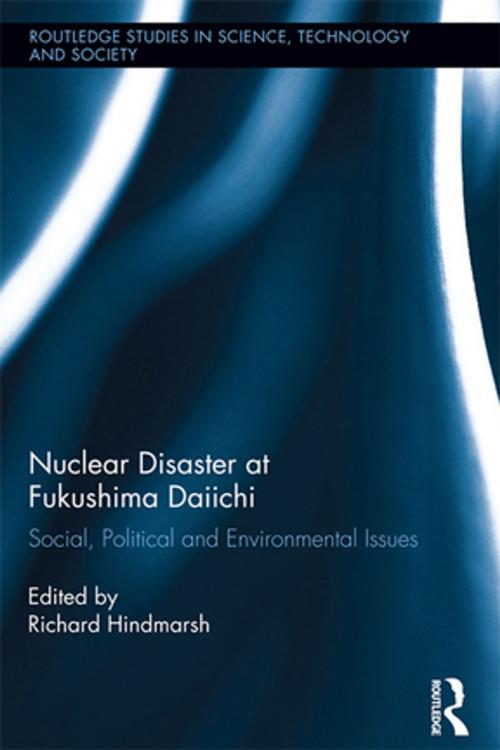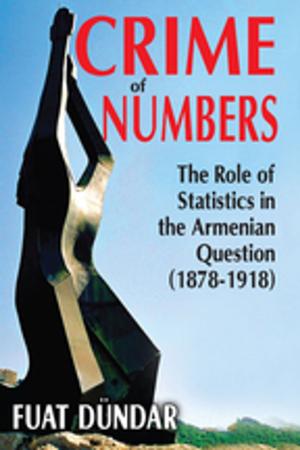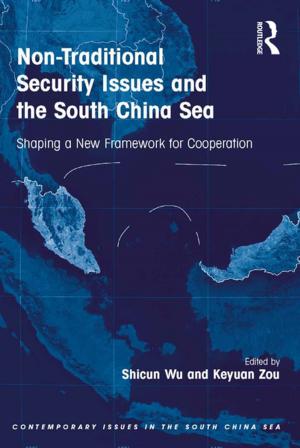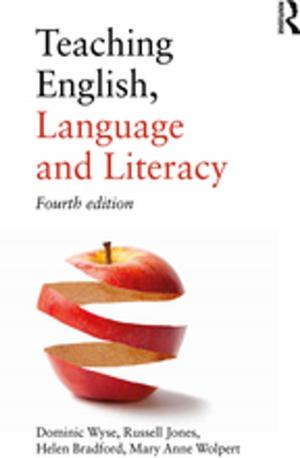Nuclear Disaster at Fukushima Daiichi
Social, Political and Environmental Issues
Nonfiction, Social & Cultural Studies, Political Science, Government, Public Policy| Author: | ISBN: | 9781135910969 | |
| Publisher: | Taylor and Francis | Publication: | August 21, 2013 |
| Imprint: | Routledge | Language: | English |
| Author: | |
| ISBN: | 9781135910969 |
| Publisher: | Taylor and Francis |
| Publication: | August 21, 2013 |
| Imprint: | Routledge |
| Language: | English |
Nuclear Disaster at Fukushima Daiichi is a timely and groundbreaking account of the disturbing landscape of the Fukushima Daiichi nuclear meltdown amidst an earthquake and tsunami on Japan’s northeast coastline on March 11, 2011. It provides riveting insights into the social and political landscape of nuclear power development in Japan, which significantly contributed to the disaster; the flawed disaster management options taken; and the political, technical, and social reactions as the accident unfolded. In doing so, it critically reflects on the implications for managing future nuclear disasters, for effective and responsible regulation and good governance of controversial science and technology, or technoscience, and for the future of nuclear power itself, both in Japan and internationally.
Informed by a leading cast of international scholars in science, technology and society studies, the book is at the forefront of discussing the Fukushima Daiichi disaster at the intersection of social, environmental and energy security and good governance when such issues dominate global agendas for sustainable futures. Its powerful critique of the risks and hazards of nuclear energy alongside poor disaster management is an important counterbalance to the plans for nuclear build as central to sustainable energy in the face of climate change, increasing extreme weather events and environmental problems, and diminishing fossil fuel, peak oil, and rising electricity costs.
Adding significantly to the consideration and debate of these critical issues, the book will interest academics, policy-makers, energy pundits, public interest organizations, citizens and students engaged variously with Fukushima itself, disaster management, political science, environmental/energy policy and risk, public health, sociology, public participation, civil society activism, new media, sustainability, and technology governance.
Nuclear Disaster at Fukushima Daiichi is a timely and groundbreaking account of the disturbing landscape of the Fukushima Daiichi nuclear meltdown amidst an earthquake and tsunami on Japan’s northeast coastline on March 11, 2011. It provides riveting insights into the social and political landscape of nuclear power development in Japan, which significantly contributed to the disaster; the flawed disaster management options taken; and the political, technical, and social reactions as the accident unfolded. In doing so, it critically reflects on the implications for managing future nuclear disasters, for effective and responsible regulation and good governance of controversial science and technology, or technoscience, and for the future of nuclear power itself, both in Japan and internationally.
Informed by a leading cast of international scholars in science, technology and society studies, the book is at the forefront of discussing the Fukushima Daiichi disaster at the intersection of social, environmental and energy security and good governance when such issues dominate global agendas for sustainable futures. Its powerful critique of the risks and hazards of nuclear energy alongside poor disaster management is an important counterbalance to the plans for nuclear build as central to sustainable energy in the face of climate change, increasing extreme weather events and environmental problems, and diminishing fossil fuel, peak oil, and rising electricity costs.
Adding significantly to the consideration and debate of these critical issues, the book will interest academics, policy-makers, energy pundits, public interest organizations, citizens and students engaged variously with Fukushima itself, disaster management, political science, environmental/energy policy and risk, public health, sociology, public participation, civil society activism, new media, sustainability, and technology governance.















